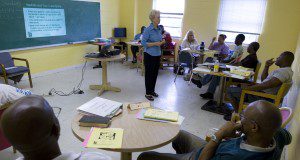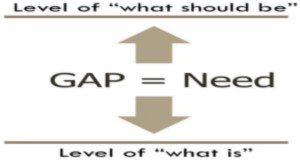This 3-page publication highlights strategies to help Extension professionals increase their personal resilience in disaster response efforts. Written by Amanda D. Ali, Angela Lindsey, Amy Harder, Lisa Lundy, and T. Grady Roberts, and published by the UF/IFAS Department of Agricultural Education and Communication, May 2020.
https://edis.ifas.ufl.edu/wc360
Tag: Amy Harder
Conducting the Needs Assessment #10: The Delphi Technique
Previous publications in the Conducting the Needs Assessment series outlined why, how, and when Extension educators and other service providers should use needs assessments in their programs. The four preceding publications in the series provide Extension educators and other service providers with specific techniques that can be used in needs assessments, and this new 5-page publication provides an overview of using the Delphi technique to conduct a needs assessment. Written by Laura Warner and Amy Harder, and published by the UF/IFAS Department of Agricultural Education and Communication.
https://edis.ifas.ufl.edu/wc364
Conducting the Needs Assessment #11: Causal Analysis Techniques
This new 3-page publication in the Conducting the Needs Assessment series provides Extension educators and other service providers with an introduction to two techniques that can easily be used when seeking information about relationships between causes and needs: fishboning and cause and consequence analysis. Written by Amy Harder and published by the UF/IFAS Department of Agricultural Education and Communication.
https://edis.ifas.ufl.edu/wc352
Conducting the Needs Assessment, Part 1: Introduction
An integral step in the program development process is identifying the needs of a community. Educators seeking to develop and deliver an educational program must first be informed of what their audience lacks in order to develop the right curriculum or training. This initial publication in the Conducting the Needs Assessment series provides a brief introduction to the planning, implementation, and prioritization of needs within a community or specific clientele group. This new 4-page publication of the UF/IFAS Department of Agricultural Education and Communication was written by Matthew Benge, Amy Harder, and Laura Warner.
https://edis.ifas.ufl.edu/wc340
Guidelines for Writing Quality Impact Statements for Workload and Marketing
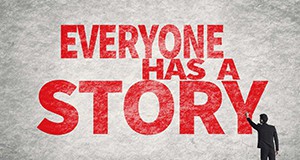
There’s nothing like a great story to catch people’s attention. Extension faculty can use storytelling techniques to develop strong impact statements that communicate the results of their programming. This three-page fact sheet dissects the different elements of an impact story, explains how to connect a story to the large impact of the program, and provides an example of a success story with impact statement. Written by Amy Harder and Ruth Borger, and published by the Agricultural Education and Communication Department.
http://edis.ifas.ufl.edu/wc241
Priority Competencies Needed by UF/IFAS Extension County Faculty
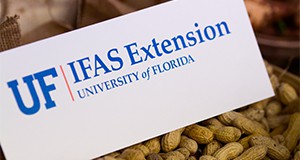
Research shows that competency is a better indicator of employee potential than intelligence alone. This 5-page fact sheet outlines ten competency areas relevant to Extension county faculty, as well as examples of how Extension faculty might embody these qualities in their work. Written by Amy Harder, and published by the UF Department of Agricultural Education and Communication, September 2015.
http://edis.ifas.ufl.edu/wc236
Increasing Efficiency in Extension Using the Train-the-Trainer Approach
 Extension has adapted to today’s financial realities through a number of strategies, including increased reliance on partnerships. One strategy that expands the reach of an Extension agent and capitalizes on partners is the “train-the-trainer” approach.This 4-page fact sheet describes the train-the-trainer approach as it applies to Extension programming, provides contextual examples from within and beyond UF/IFAS Extension, and offers best management practices. Written by Laura A. Warner, Amy Harder, Tom Wichman, and Frank Dowdle, and published by the UF Department of Agricultural Education and Communication, September 2014.
Extension has adapted to today’s financial realities through a number of strategies, including increased reliance on partnerships. One strategy that expands the reach of an Extension agent and capitalizes on partners is the “train-the-trainer” approach.This 4-page fact sheet describes the train-the-trainer approach as it applies to Extension programming, provides contextual examples from within and beyond UF/IFAS Extension, and offers best management practices. Written by Laura A. Warner, Amy Harder, Tom Wichman, and Frank Dowdle, and published by the UF Department of Agricultural Education and Communication, September 2014.
http://edis.ifas.ufl.edu/wc170
Grant Writing: Tips and Advice for New Writers
 While grant writing is a highly useful and potentially lucrative skill, it can also be a challenge to learn how to successfully write grants. Moving through the entire process of creating and harnessing a new idea to building a collaborative team, and making sure the proposal itself is high quality and includes all the important pieces can be daunting for new grant writers. This 5-page fact sheet shares tips and walks you through the process of writing a collaborative grant by helping illuminate how to manage the idea creation, team building, and proposal writing stages of your grant writing experience. Written by Erica Odera, Sebastian Galindo-Gonzalez, Amy Harder, Glenn D. Israel, and Alexa J. Lamm, and published by the UF Department of Agricultural Education and Communication, May 2014.
While grant writing is a highly useful and potentially lucrative skill, it can also be a challenge to learn how to successfully write grants. Moving through the entire process of creating and harnessing a new idea to building a collaborative team, and making sure the proposal itself is high quality and includes all the important pieces can be daunting for new grant writers. This 5-page fact sheet shares tips and walks you through the process of writing a collaborative grant by helping illuminate how to manage the idea creation, team building, and proposal writing stages of your grant writing experience. Written by Erica Odera, Sebastian Galindo-Gonzalez, Amy Harder, Glenn D. Israel, and Alexa J. Lamm, and published by the UF Department of Agricultural Education and Communication, May 2014.
http://edis.ifas.ufl.edu/wc161
Being Smart about Gluten and Gluten-free Issues, Part 2: What Retailers and Consumers Need to Know about Gluten and Gluten-free Product Labeling
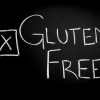 In 2011, gluten was recognized as having a specific link to celiac disease, and some consumers hoping to minimize the symptoms of celiac disease have opted to modify their diets. This is the second of a three-part series of publications called “Being Smart about Gluten and Gluten-Free Issues.” The purpose of this publication is to supply retailers and consumers with easy-to-understand information about labeling as related to gluten-free products. This 3-page fact sheet was written by Abigail Dicks, Amy Harder, and Amy Simonne, and published by the UF Department of Agricultural Education and Communication, September 2014.
In 2011, gluten was recognized as having a specific link to celiac disease, and some consumers hoping to minimize the symptoms of celiac disease have opted to modify their diets. This is the second of a three-part series of publications called “Being Smart about Gluten and Gluten-Free Issues.” The purpose of this publication is to supply retailers and consumers with easy-to-understand information about labeling as related to gluten-free products. This 3-page fact sheet was written by Abigail Dicks, Amy Harder, and Amy Simonne, and published by the UF Department of Agricultural Education and Communication, September 2014.
http://edis.ifas.ufl.edu/wc153
Developing Strong Teamwork to Support Excellence in Extension Programming
 Sometimes differentiating a group from a team is difficult. Is the group of people that you work with truly a team? What benefits are there to being a member of a highly functioning team? In Patrick Lencioni’s iconic book on teamwork, The Five Dysfunctions of a Team , five elements are outlined as necessary for highly functioning teams. These are trust, ability to successfully engage in conflict, commitment to each other and the team, accountability, and focusing on collective results. This 2-page fact sheet was written by Hannah Carter, Amy Harder, and Kevan Lamm, and published by the UF Department of Agricultural Education and Communication, May 2013.
Sometimes differentiating a group from a team is difficult. Is the group of people that you work with truly a team? What benefits are there to being a member of a highly functioning team? In Patrick Lencioni’s iconic book on teamwork, The Five Dysfunctions of a Team , five elements are outlined as necessary for highly functioning teams. These are trust, ability to successfully engage in conflict, commitment to each other and the team, accountability, and focusing on collective results. This 2-page fact sheet was written by Hannah Carter, Amy Harder, and Kevan Lamm, and published by the UF Department of Agricultural Education and Communication, May 2013.
http://edis.ifas.ufl.edu/wc143
Engaging Distance Learners in Cooperative Extension
 Distance education allows organizations to reach broader audiences, reduce costs per learner, and better serve communities. This 4-page fact sheet discusses how to incorporate the best practices for engaging learners in online distance education programs. Written by Austen Moore and Amy Harder, and published by the UF Department of Agricultural Education and Communication, May 2013.
Distance education allows organizations to reach broader audiences, reduce costs per learner, and better serve communities. This 4-page fact sheet discusses how to incorporate the best practices for engaging learners in online distance education programs. Written by Austen Moore and Amy Harder, and published by the UF Department of Agricultural Education and Communication, May 2013.
http://edis.ifas.ufl.edu/wc142
Reusable Learning Objects: Tools for Teaching in Nonformal Education (WC140)
 Reusable learning objects are short, self-contained, digital learning activities that can be valuable tools for sharing information. This 4-page fact sheet provides a brief synopsis of what reusable learning objects are and how to create an them for use in an educational setting. Written by Jessica L. Gouldthorpe, Amy Harder, T. Grady Roberts, and Nicole Stedman, and published by the UF Department of Agricultural Education and Communication, April 2013.
Reusable learning objects are short, self-contained, digital learning activities that can be valuable tools for sharing information. This 4-page fact sheet provides a brief synopsis of what reusable learning objects are and how to create an them for use in an educational setting. Written by Jessica L. Gouldthorpe, Amy Harder, T. Grady Roberts, and Nicole Stedman, and published by the UF Department of Agricultural Education and Communication, April 2013.
http://edis.ifas.ufl.edu/wc140
Developing Urban Community Garden Projects (WC139)
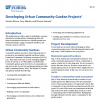 Community gardens are pieces of land where groups of people grow and maintain vegetable and flower plants. They exist in all types of areas, including neighborhoods, at schools, or on other public or private lands. Community gardens grow food for local consumption or sale and can also be used for teaching gardening and other skills This 7-page fact sheet provides a guide to individuals or groups interested in starting urban community gardens and includes information about how to identify garden sites, build partnerships, engage community members, and develop a project overview. Written by Austen Moore, Amy Harder, and Norma Samuel, and published by the UF Department of Agricultural Education and Communication, March 2013.
Community gardens are pieces of land where groups of people grow and maintain vegetable and flower plants. They exist in all types of areas, including neighborhoods, at schools, or on other public or private lands. Community gardens grow food for local consumption or sale and can also be used for teaching gardening and other skills This 7-page fact sheet provides a guide to individuals or groups interested in starting urban community gardens and includes information about how to identify garden sites, build partnerships, engage community members, and develop a project overview. Written by Austen Moore, Amy Harder, and Norma Samuel, and published by the UF Department of Agricultural Education and Communication, March 2013.
http://edis.ifas.ufl.edu/wc139
Being Smart About Gluten and Gluten-Free Issues, Part 1: What Are the Health Concerns Surrounding Gluten? (WC133/WC133)
 Are you an inquisitive consumer who asks what the big deal is about gluten free? Ask no more; this article is the first in a three–part series about gluten. This 7-page fact sheet identifies health conditions surrounding the ingestion of gluten. The resources used in this article are research and evidence based and/or peer reviewed to provide straightforward and simple information about a few gluten-related topics. Written by Abigail Dicks, Amy Harder, and Amy Simonne, and published by the UF Department of Agricultural Education and Communication, January 2013.
Are you an inquisitive consumer who asks what the big deal is about gluten free? Ask no more; this article is the first in a three–part series about gluten. This 7-page fact sheet identifies health conditions surrounding the ingestion of gluten. The resources used in this article are research and evidence based and/or peer reviewed to provide straightforward and simple information about a few gluten-related topics. Written by Abigail Dicks, Amy Harder, and Amy Simonne, and published by the UF Department of Agricultural Education and Communication, January 2013.
http://edis.ifas.ufl.edu/wc133
Finding Grant Opportunities to Support County Extension Programs (WC134)
 This 3-page fact sheet presents information about where to look for grant opportunities, what to look for when reviewing grant opportunities, and how to determine if the opportunity fits your idea. Written by Amy Harder, Alexa Lamm, and Sebastian Galindo, and published by the UF Department of Agricultural Education and Communication, December 2012.
This 3-page fact sheet presents information about where to look for grant opportunities, what to look for when reviewing grant opportunities, and how to determine if the opportunity fits your idea. Written by Amy Harder, Alexa Lamm, and Sebastian Galindo, and published by the UF Department of Agricultural Education and Communication, December 2012.
http://edis.ifas.ufl.edu/wc134
What is an Extension Program? (WC108)
This 3-page fact sheet provides a definition for the term program and discusses the primary components included in a program. Written by Glenn Israel, Amy Harder, and Cheri Winton Brodeur , and published by the UF Department of Agricultural Education and Communication, May 2011.
http://edis.ifas.ufl.edu/wc108
Evaluating Extension Programs (WC109)
Is program evaluation just a “necessary evil” for Extension program implementation? Or, rather, an opportunity to identify and document accomplishments and discover ways to strengthen the impact of programs? This 5-page fact sheet defines evaluation, explains why evaluation is important to Extension programming beyond accountability requirements, describes how UF/IFAS Extension agents are currently evaluating their programs, and makes suggestions for future evaluation efforts that will showcase the value of Extension programming to the public. Written by Alexa J. Lamm, Glenn D. Israel, David Diehl, and Amy Harder , and published by the UF Department of Agricultural Education and Communication, May 2011.
http://edis.ifas.ufl.edu/wc109
Maintaining Professionalism on Facebook: Tips for Extension Agents (WC107)
Facebook has revolutionized the world in which we communicate. In just a few mouse clicks, you can access personal information, pictures, recent conversations, and much more about your Facebook “friends.” With these things in mind, it is important to carefully consider the implications of becoming a Facebook friend. This 4-page fact sheet discusses professionalism and legal considerations for using Facebook as a tool to promote Extension programs. Written by Amy Harder, Hannah S. Carter, and Christy Chiarelli, and published by the UF Department of Agricultural Education and Communication, April 2011.
http://edis.ifas.ufl.edu/wc107
WC105 Determining Program Priorities
WC105, a 4-page fact sheet by Amy Harder, provides a step-by-step approach for sorting and prioritizing community needs for Extension programming. Includes references. Published by the UF Department of Agricultural Education and Communication, September 2010.
http://edis.ifas.ufl.edu/wc105
WC091 Utilizing Opinion Leaders to Affect Goal Achievement for FYN Objectives
WC091, a 3-page fact sheet by Robert Strong and Amy Harder, informs Florida Yards & Neighborhoods coordinators how to identify and utilize opinion leaders to increase adult participation in their programs. Includes references. Published by the UF Department of Agricultural Education and Communication, January 2010.
http://edis.ifas.ufl.edu/WC091


